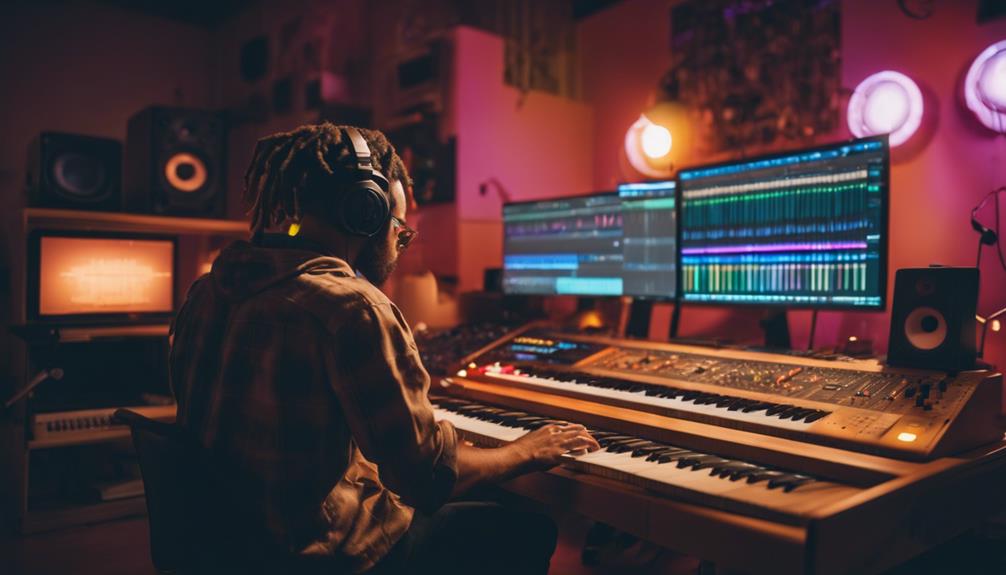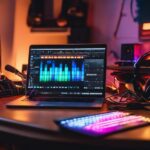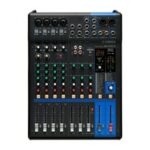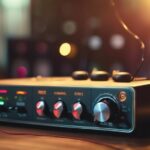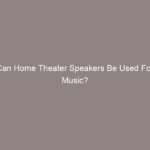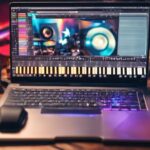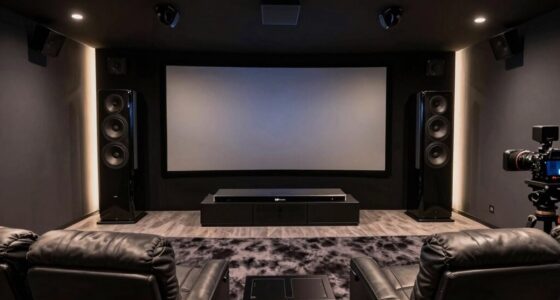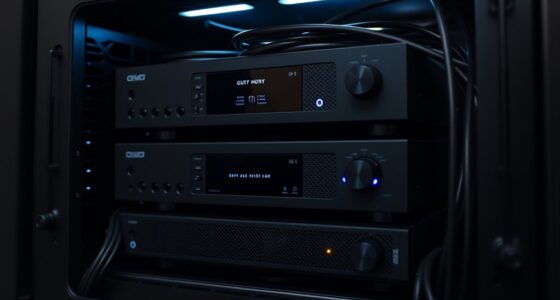I've identified the 15 best music production courses to elevate your skills in 2025. Courses like "Step By Step Mixing" teach essential plug-ins for mixing, while "Music Theory for Computer Musicians" provides a solid foundation for electronic producers. Beginners can start with the "Music Production For Beginners Guide," covering the basics of music business and home studio setups. Additionally, "Social Media Marketing For Musicians" helps enhance your online presence. Each course offers unique advantages, such as hands-on projects and industry insights. If you're keen on exploring these options further, you'll find valuable details waiting for you.
Key Takeaways
- Look for courses that prioritize essential topics like music theory, production software, and sound design, ensuring relevance to contemporary trends.
- Choose programs offering hands-on projects and access to professional equipment for practical skill application and real-world experience.
- Assess instructor experience, focusing on those with industry backgrounds and established networks for valuable insights and internship opportunities.
- Consider the duration and flexibility of courses, balancing between short workshops for quick skills and longer programs for comprehensive knowledge.

Douk Audio BS-1 Bass Shaker: 50W High Power Tactile Transducer - Subwoofer Lows for Home Theater, Car Audio & Gaming Chair Vibration Immersion (1 PC)
The fully upgraded version of Douk Audio BS-1 bass shaker, released in May 2025, the performance is greatly...
As an affiliate, we earn on qualifying purchases.
Step By Step Mixing: How to Create Great Mixes Using Only 5 Plug-ins

If you're a home studio musician enthusiastic to elevate your mixing skills, 'Step By Step Mixing' offers a streamlined approach using just five essential plug-ins.
This book simplifies the mixing process by focusing on EQ, compression, reverb, delay, and saturation. Each plug-in is vital for enhancing sound quality in home studios.
The author, Björgvin Benediktsson, provides a detailed walkthrough of the frequency spectrum, helping you place instruments effectively in your mixes.
You'll also learn how to use compressors for punchy results, apply reverb and delay to create space without clutter, and utilize saturation to enrich your mixes.
While it's not aimed at absolute beginners, it's perfect for those who want a structured, practical approach to improve their mixing techniques.
Best For: Home studio musicians looking to improve their mixing skills with a structured, practical approach using essential plug-ins.
Pros:
- Clear and concise content that simplifies the mixing process.
- Focus on practical techniques for effective use of essential plug-ins.
Cons:
- Not suitable for absolute beginners, requiring some prior knowledge of mixing.
- Some criticism regarding the audiobook narration quality.

Douk Audio BS-1 Bass Shaker: 50W High Power Tactile Transducer - Subwoofer Lows for Home Theater, Car Audio & Gaming Chair Vibration Immersion (1 Pair)
The fully upgraded version of Douk Audio BS-1 bass shaker, released in May 2025, the performance is greatly...
As an affiliate, we earn on qualifying purchases.
Music Theory for Computer Musicians

For aspiring electronic music producers and DJs, 'Music Theory for Computer Musicians' offers an essential foundation in music theory that enhances creativity and improves composition skills.
Michael Hewitt's practical approach bridges the gap between traditional music theory and modern digital production. The book presents concepts clearly, making it accessible even for those without prior knowledge.
I found the workbook-style activities invaluable for reinforcing what I learned. While minor errors exist in the answer key, the overall content remains engaging.
The supplementary exercises and MP3s provide hands-on experience, vital for skill development.
This book is a must-have for anyone looking to integrate music theory into their workflow, ultimately leading to better original music creation.
Best For: Aspiring electronic music producers, DJs, and gigging musicians looking to enhance their understanding of music theory for improved creativity and composition skills.
Pros:
- Clearly presents music theory concepts in an accessible manner, even for beginners.
- Includes practical workbook-style activities and supplementary MP3s for hands-on learning.
Cons:
- Some minor typos and incorrect answers noted in the answer key.
- Requires commitment to complete exercises for maximum benefit.

Dayton Audio BSK2 Dual Bass Shaker Couch Kit
Powerful amplifier and bass shaker combo optimized to add earth shaking bass for movies, games, and music
As an affiliate, we earn on qualifying purchases.
Music Production For Beginners 2020 Edition Guide

The 'Music Production For Beginners 2020 Edition' guide is perfect for aspiring music producers who want a straightforward, accessible entry point into the world of music production without feeling overwhelmed. This easy-to-read resource covers essential topics, such as music business basics, EDM production, and home studio setup.
Written by an experienced composer and DJ, the guide has received positive reviews for its clarity, although some readers found it overly simplistic at times.
Key insights include tips on achieving quality mixes on a budget, writing chords and beats, and avoiding common beginner mistakes.
The author encourages readers to rely on this guide rather than forums and YouTube, aiming to equip them with the necessary tools to succeed in their music production journey.
Best For: Beginners and those with some experience looking to enhance their music production skills in a clear and accessible manner.
Pros:
- Provides a straightforward introduction to music production concepts and techniques.
- Covers a wide range of essential topics, making it a comprehensive resource for beginners.
Cons:
- Some readers may find the content overly simplistic and lacking in depth.
- A few spelling and flow issues may detract from the overall reading experience.

Dayton Audio BST-2 Tactile Bass Shaker 35 Watt
Increase the realism of home theater and gaming systems for a more immersive experience
As an affiliate, we earn on qualifying purchases.
Berklee Music Theory Book 2 – 2nd Edition Book/Online Audio

Students moving from basic music concepts will find the Berklee Music Theory Book 2 – 2nd Edition essential for mastering harmony and advancing their understanding of music theory.
This book dives into more complex topics, like triads, seventh chords, and voice leading, making it a solid resource for those without a formal music education. It's structured to promote practical application, helping learners keep pace with peers who've college backgrounds.
The lessons are clear and designed for piano, but guitar players can benefit too. With abundant exercises and an accompanying online audio component, I can enhance my listening and writing skills.
While it's suitable for self-study, pairing it with a teacher is advisable for deeper understanding. Overall, it's a valuable tool for aspiring musicians.
Best For: Students advancing from basic music concepts looking to deepen their understanding of harmony and music theory without formal college education.
Pros:
- Clear and concise instruction designed for practical application, making it accessible for both piano and guitar players.
- Abundant exercises and an online audio component enhance listening, reading, and writing skills.
Cons:
- Lacks the detailed explanations found in some other music theory resources, which may be beneficial for beginners.
- Best utilized with a teacher for deeper understanding, which may not be feasible for all learners.
How To Make It in the New Music Business: Practical Tips for Musicians

Aspiring musicians seeking to thrive in today's competitive landscape will find 'How to Make It in the New Music Business' an invaluable resource packed with actionable strategies and insights.
Written by Ari Herstand, this guide covers everything from building a grassroots fan base to booking profitable tours and licensing songs. Each topic is broken down into easy-to-understand steps, making complex concepts accessible.
Many readers have praised its transformative advice, noting significant improvements in their careers. While other resources exist, Herstand's book is often recommended as a foundational read for independent musicians.
It emphasizes the importance of social media engagement and direct fan interaction, which are essential in the current music industry.
Overall, this book is a must-read for anyone serious about their music career.
Best For: Independent musicians and aspiring artists looking to navigate the modern music industry with practical strategies and insights.
Pros:
- Comprehensive coverage: Addresses all aspects of the music business, from fan engagement to monetization.
- Actionable advice: Offers step-by-step guidance that is easy to understand and implement.
Cons:
- Information overload: The extensive content may be overwhelming for beginners who are new to the industry.
- Evolving landscape: Some strategies may become outdated as the music industry continues to change rapidly.
John Thompson's Easiest Piano Course Complete – Boxed Set

Looking for a fun and engaging way to learn piano? John Thompson's Easiest Piano Course Complete – Boxed Set is perfect for beginners of all ages, offering clear direction and colorful illustrations that make the journey enjoyable.
This boxed set includes Books 1-4, each with 38 pages designed for absolute beginners. With over 12 million students since 1955, it effectively combines structured lessons with audio tracks, allowing me to hear how pieces should sound.
While some may find the cartoon characters distracting and the audio quality outdated, the overall approach remains effective. I appreciate the engaging materials and meaningful lessons, making this course an excellent choice for anyone looking to learn piano independently.
Best For: Beginners of all ages looking for a fun and engaging way to learn piano independently.
Pros:
- Excellent for absolute beginners with structured lessons.
- Colorful illustrations and engaging characters enhance the learning experience.
Cons:
- Some users find the cartoon characters distracting.
- The audio quality of the accompanying CDs is considered outdated.
Cocktail Food: 50 Finger Foods with Attitude

For anyone enthusiastic to impress at their next gathering, 'Cocktail Food: 50 Finger Foods with Attitude' offers a treasure trove of quick and appealing recipes that make entertaining effortless.
I've found that most recipes take only 20-30 minutes to prepare, which makes them perfect for last-minute gatherings.
The book features a mix of heavy and light appetizers, catering to various events and tastes. Unique names like 'Shrimply Delish' and 'Wonton Wonders' add a creative twist to traditional hors d'oeuvres.
Many users rave about the recipes, often reporting that they've received requests for them. However, some feel the ideas lack true innovation.
Overall, this book serves as an excellent resource for planning appetizers and enhancing any party experience.
Best For: Those looking to elevate their entertaining skills with quick and delicious appetizer recipes for various gatherings.
Pros:
- Most recipes are quick to prepare, taking only 20-30 minutes.
- Offers a variety of appetizers, catering to different tastes and event types.
Cons:
- Some recipes may lack true innovation and are perceived as variations of classic dishes.
- A few users reported quality control issues, such as receiving damaged copies.
Sauces: Classical and Contemporary Sauce Making, 3rd Edition

Serious chefs and dedicated home cooks will find *Sauces: Classical and Contemporary Sauce Making, 3rd Edition* to be an invaluable resource for mastering the art of sauce creation.
This thorough guide covers twenty chapters that explore the history, techniques, and types of sauces. It emphasizes understanding sauce relationships and techniques over quick recipes, making it ideal for those looking to elevate their culinary skills.
The book includes detailed instructions and valuable charts, which enhance the learning experience. While it caters to intermediate and advanced cooks, novice chefs might feel overwhelmed by the depth of information.
Overall, this book serves as an authoritative reference on sauce making, making it a must-have for anyone serious about cooking.
Best For: Serious chefs and dedicated home cooks looking to master the art of sauce making through a comprehensive understanding of techniques and history.
Pros:
- Thorough coverage of sauce making history, techniques, and types, making it an authoritative reference.
- Valuable charts and diagrams that enhance the learning experience and illustrate sauce relationships.
Cons:
- Intimidating for novice cooks due to the depth and complexity of information presented.
- Not geared towards quick recipes, which may deter those seeking fast meal solutions.
The Lost Art of Pie Making Made Easy

Barbara Swell's 'The Lost Art of Pie Making Made Easy' is the perfect guide for anyone enthusiastic to reconnect with traditional baking techniques through a collection of heartfelt and practical recipes.
This compact 72-page book features 54 recipes spread across ten categories, covering everything from crusts to holiday pies.
Swell's homey writing style, filled with historical anecdotes and practical tips, makes the pie-making process accessible and enjoyable.
While some readers criticize its small size and black-and-white format, many appreciate the nostalgic recipes derived from 19th-century cooking journals.
With clear instructions on techniques like blind baking and lattice crusts, this book serves as a valuable resource for both novice and experienced bakers keen to revive the art of pie-making.
Best For: Anyone looking to embrace traditional pie-making techniques and enjoy nostalgic recipes from a homey, engaging perspective.
Pros:
- Engaging Writing Style: Barbara Swell's warm and humorous approach makes the book enjoyable to read.
- Variety of Recipes: With 54 recipes across ten categories, there's something for every pie enthusiast.
Cons:
- Small Size: Some readers find the 72-page format more akin to a pamphlet than a full book.
- Lack of Color Photos: The black-and-white printing may not appeal to those who prefer visual references in cooking books.
How Conversation Works: 6 Lessons for Better Communication

Anyone looking to enhance their conversational skills will find 'How Conversation Works: 6 Lessons for Better Communication' exceptionally beneficial, as it provides practical strategies that improve interactions in both personal and professional settings.
This course, led by Professor Anne Curzan, offers six insightful lectures focused on effective communication. It emphasizes the importance of conversations for happiness and well-being, showing how strong communication contributes to professional growth and relationship building.
I learned about key concepts like 'face' dynamics and techniques for addressing mistakes or sharing tough feedback. The course equips participants with tools for job interviews and social interactions, making conversations more enjoyable.
Overall, it's a valuable resource for anyone enthusiastic to refine their speaking abilities and deepen connections.
Best For: Individuals seeking to improve their conversational skills for personal and professional success.
Pros:
- Provides practical strategies for effective communication in various settings.
- Covers key concepts like 'face' dynamics and techniques for giving feedback.
Cons:
- Some feedback suggests that visual elements could improve the learning experience.
- May not address advanced conversational techniques for seasoned communicators.
Latin: An Intensive Course

For motivated beginners and advanced students alike, *Latin: An Intensive Course* stands out as the best choice for mastering Latin grammar efficiently.
I've found it to be superior to other textbooks like *Wheelock* and *Latin Via Ovid*, thanks to its clear explanations and structured approach.
The course covers essential grammar topics thoroughly, especially the subjunctive and relative clauses.
I appreciate the self-review exercises every four chapters, which help reinforce my understanding.
Although the binding quality isn't great, the content's clarity and depth more than make up for it.
Completing this intensive course in about three semesters equips me with robust grammatical skills and early reading experience with notable authors like Ovid and Vergil, making it a valuable resource for serious students.
Best For: Motivated beginners and advanced students seeking a comprehensive and efficient approach to mastering Latin grammar.
Pros:
- Clear explanations of complex grammar concepts, particularly subjunctive and relative clauses.
- Self-review exercises every four chapters enhance understanding and retention.
Cons:
- Binding quality is criticized as 'terrible,' affecting durability.
- The organization of appendix tables is less user-friendly compared to other textbooks like *Wheelock*.
EarFun S1 Kids Headphones, Foldable Wired with Volume Limit

The EarFun S1 Kids Headphones are a top choice for parents seeking safe and comfortable audio solutions, featuring an 85dB volume limit to protect young ears while delivering impressive sound quality.
With soft earcaps and a 9-level adjustable headband, these headphones accommodate different head shapes, guaranteeing comfort during long listening sessions. Weighing only 118g, their foldable design makes them easy to store and transport, perfect for school or travel.
The high-quality 40mm drivers provide clear mid and high frequencies along with strong bass, making them suitable for both educational content and entertainment. Plus, their standard 3.5mm jack ensures compatibility with various devices.
With a solid customer rating of 4.7 out of 5 stars, these headphones offer excellent value and durability for kids.
Best For: Parents looking for safe and comfortable headphones for their children that provide quality sound without risking hearing damage.
Pros:
- 85dB safe volume limit protects children's hearing while allowing for clear sound detail.
- Lightweight and foldable design makes them easy to carry and store, ideal for travel and school use.
Cons:
- Wired connection may limit mobility compared to wireless options.
- Standard 3.5mm jack might not be compatible with newer devices that lack headphone ports.
The Complete America's Test Kitchen TV Show Cookbook 2001-2022

This cookbook's extensive collection of foolproof recipes makes it an ideal choice for both novice cooks enthusiastic to build their skills and seasoned chefs looking to expand their repertoire.
Covering 22 years of the America's Test Kitchen TV show, the book includes every recipe aired, along with product ratings and a shopping guide. Its wide range of offerings, from appetizers to desserts, is structured for easy navigation, catering to varying skill levels.
While many users appreciate its reliability and quality, some express disappointment over missing specific favorite recipes.
Despite its large size, the hardbound format presents beautifully, making it a fantastic resource for anyone keen to enhance their culinary abilities.
Overall, it's a valuable asset for any kitchen.
Best For: This cookbook is best for both novice cooks eager to improve their skills and experienced chefs looking to diversify their cooking repertoire.
Pros:
- Comprehensive collection of recipes spanning 22 years of the America's Test Kitchen TV show, ensuring a wide variety of options.
- Detailed instructions and cooking tips make it accessible for cooks of all skill levels.
Cons:
- Large and heavy design may be cumbersome for some users to handle.
- Some users express disappointment over missing specific recipes they expected from the show.
The Art of Still Life: A Contemporary Guide to Classical Techniques

Artists seeking to deepen their understanding of classical still life techniques will find 'The Art of Still Life: A Contemporary Guide to Classical Techniques' an invaluable resource. This book stands out for its exceptional images and extensive coverage of classical painting methods.
It explores essential topics like light, composition, and color theory, providing insights into setting up a still life and effective lighting techniques.
While it lacks structured lessons, it thoroughly discusses vital concepts such as form, edges, and shadows, making it a useful reference for artists at any level. The high-quality photographs and thick paper enhance the visual experience, and Todd Casey's illustrations clarify complex ideas.
Overall, it's highly recommended for serious painters aiming to master still life.
Best For: Artists of all levels looking to enhance their still life painting skills through classical techniques.
Pros:
- Provides a comprehensive exploration of essential topics like light, composition, and color theory.
- Features high-quality photographs and illustrations that enhance understanding of complex concepts.
Cons:
- Lacks structured lessons and step-by-step instructions, which may not suit all learning styles.
- The section on composition could benefit from more detailed discussions on breaking traditional rules.
Social Media Marketing For Musicians That Works! Vol. I

Musicians seeking to boost their online presence and engagement will find Dan Shinder's 'Social Media Marketing for Musicians That Works! Vol. I' to be an invaluable resource.
This guide emphasizes the importance of social media in enhancing visibility and reputation. Shinder offers practical strategies to increase ticket sales and music downloads while building a loyal fan base.
His expertise, drawn from extensive experience in social media marketing, makes this a reliable tool for musicians at any level. The manual includes actionable insights, such as engaging content creation and avoiding constant self-promotion.
Readers have reported positive results, including increased followers and engagement. Overall, this series serves as an accessible starter for musicians looking to elevate their marketing efforts effectively.
Best For: Musicians at any level seeking to enhance their social media presence and engagement to boost ticket sales and build a loyal fan base.
Pros:
- Provides practical and actionable strategies for effective social media marketing.
- Readers have reported increased followers and content engagement after implementation.
Cons:
- Some readers feel the information may only scratch the surface of social media marketing.
- The focus on basic strategies may not meet the needs of more experienced marketers.
Factors to Consider When Choosing Music Production Courses

When I choose a music production course, I consider several key factors.
The relevance of the course content to my goals, the learning format that fits my schedule, and the instructor's experience all play a big role.
I also think about the duration and commitment required, along with practical opportunities to apply what I learn.
Course Content Relevance
What should I prioritize in a music production course to guarantee it aligns with my learning goals?
First, I'll evaluate whether the course covers essential topics like music theory, production software, sound design, mixing, and mastering. These foundational elements are critical for developing my music production skills.
Next, I'll look for courses that offer practical, hands-on projects. Applying concepts to real-world scenarios is fundamental for my growth.
I'll also make certain the curriculum addresses contemporary trends in music production, such as digital audio workstations (DAWs) and electronic music techniques. Understanding the music business—marketing, distribution, and monetization—is equally important for my success.
It's beneficial if the course includes supplementary materials like exercises and audio examples to reinforce learning.
Additionally, I'll investigate if the course incorporates current industry-standard software and technology, keeping me up-to-date with professional tools.
Guest lectures or mentorship from industry professionals can provide valuable insights and networking opportunities, further enhancing my education.
Learning Format Options
Choosing the right learning format for a music production course is vital, as it directly impacts how effectively I can absorb the material and develop my skills. I've several options to evaluate, including in-person classes, online courses, and hybrid formats that combine both.
Online courses offer flexibility in scheduling, allowing me to learn at my own pace, which is beneficial if I've other commitments. However, in-person classes provide hands-on experience and direct interaction with instructors, which can enhance my understanding through immediate feedback.
Hybrid courses are another great option, letting me enjoy the flexibility of online learning while still participating in face-to-face sessions for practical work. Additionally, I should look for courses that include practical projects and real-world applications, as these are vital for skill development and portfolio building.
Intensive boot camps or workshops can also be appealing if I want to gain skills quickly. Ultimately, I need to evaluate my personal learning style and the level of interaction I desire with instructors and peers to choose the best format for my music production journey.
Instructor Experience Level
The experience level of an instructor plays a pivotal role in shaping my education and can greatly influence the depth and relevance of the music production course I select. When I consider a course, I look for instructors with solid industry experience, as they often provide real-world insights that enhance my learning. Instructors who've successfully completed music production projects can lend credibility to their teaching methods, making the material more applicable to my needs.
Moreover, instructors with diverse backgrounds, having worked with various artists or genres, can offer a broader perspective and techniques that appeal to different styles. This diversity enriches the course content and prepares me for the multifaceted world of music production. I also value instructors who've established networks within the industry, as these contacts can lead to valuable internship or collaboration opportunities.
Additionally, those with advanced degrees or specialized training in music production are often more equipped to teach complex concepts effectively. Their knowledge of updated methodologies and current technologies guarantees that I'm learning relevant skills that align with industry standards, ultimately benefiting my career in music production.
Duration and Commitment
Duration and commitment are vital factors I must take into account when selecting a music production course, as they directly impact my ability to balance learning with my other responsibilities.
Music production courses can vary greatly in length, from short workshops lasting a few hours to extensive programs that may take several months or even years. I need to assess how much time I can realistically dedicate to my studies each week.
Many online courses offer flexible schedules, allowing me to progress at my own pace. This flexibility might be ideal if I have other commitments, but it could also extend the overall duration of my learning experience. Some accredited programs may require full-time commitment, spanning one to two years, which could lead to a degree or diploma.
It's important for me to evaluate not only the class time but also the additional hours needed for practical assignments and projects. Assessing the expected weekly time commitment guarantees that the course fits within my existing schedule without overwhelming me.
Ultimately, I should weigh the benefits of longer courses, which may offer deeper knowledge, against shorter ones that focus on specific skills.
Practical Application Opportunities
When exploring music production courses, I should prioritize programs that offer practical application opportunities to guarantee I can effectively apply my learning in real-world scenarios.
One key aspect is hands-on projects that allow me to create original tracks, bridging the gap between theory and practice. This practical experience is essential for mastering production techniques.
I also need to take into account programs that provide access to professional recording equipment and industry-standard software, as this exposure will familiarize me with the tools I'll use in the field.
Collaboration opportunities with fellow musicians and producers can further enhance my learning experience, simulating a professional studio environment and improving my teamwork skills.
Receiving feedback from experienced professionals is another significant factor, helping me refine my skills and gain industry insights.
Courses that include live performance opportunities are beneficial as well, allowing me to showcase my work and receive constructive feedback from the music community.
Equipment and Software Requirements
Choosing the right music production course involves understanding the essential equipment and software requirements that will support my learning and creative process.
First, I need a decent computer with a multi-core processor and at least 8GB of RAM to run demanding software applications smoothly. Most courses specify a Digital Audio Workstation (DAW) like Ableton Live or Logic Pro, which is vital for recording, editing, and mixing.
I should also consider investing in an audio interface for high-quality sound input and output, enhancing my recording and mixing experience. A basic microphone is necessary for capturing clear audio, while studio monitors or quality headphones will guarantee accurate sound reproduction during mixing.
Additionally, having a MIDI controller can greatly improve my workflow, allowing for more intuitive input of musical ideas. Familiarity with basic audio recording equipment is important, as is exploring additional software like virtual instruments and plugins, which can expand my production capabilities.
Community and Networking Benefits
Having the right equipment and software is just the starting point; the community and networking benefits of music production courses can greatly enhance my learning experience and future career prospects.
Many courses offer collaborative opportunities where I can exchange ideas and techniques with peers, considerably boosting my skills. Networking within these courses can lead to valuable connections in the music industry, opening doors for potential collaborations, mentorships, and job opportunities.
Courses often host events, workshops, or showcases, allowing me to meet industry professionals. These interactions provide insights into various career paths and industry standards, which are vital for my growth. Engaging with a community of fellow musicians fosters motivation and accountability, keeping me committed to my learning and projects.
Participating in group projects and critiques sharpens my interpersonal skills, essential for successful collaboration in the music industry. Additionally, I gain access to online forums and events where I can share my work and receive constructive feedback.
Building a network through these courses can lead to gigs and opportunities that I mightn't discover alone, making community involvement a key factor in my music production journey.
Frequently Asked Questions
What Prerequisites Do I Need for Music Production Courses?
I didn't have any specific prerequisites when I started music production courses. However, having a basic understanding of music theory and some familiarity with digital audio workstations really helped me grasp concepts faster.
Are Online Music Production Courses as Effective as In-Person Classes?
Like a painter choosing between canvas and digital, I find online music production courses just as effective as in-person classes. They offer flexibility and access to diverse resources, allowing me to create my unique sound from anywhere.
How Much Do Music Production Courses Typically Cost?
Music production courses typically range from $200 to $2,000, depending on the institution and curriculum. I've noticed that online options often cost less, while in-person classes usually offer more hands-on experience and networking opportunities.
Can I Get a Job After Completing a Music Production Course?
I've heard people doubt job prospects after music production courses, but I found opportunities abound. Completing a course sharpened my skills and opened doors in the industry, leading to freelance gigs and even studio positions.
What Software Do I Need for Music Production Courses?
For music production courses, I use software like Ableton Live, FL Studio, and Logic Pro. These tools help me create, edit, and mix tracks effectively, making my learning experience enjoyable and productive.
Conclusion
In conclusion, choosing the right music production course in 2025 can greatly enhance your skills and knowledge.
Each course offers unique insights, whether it's mastering mixing techniques or understanding music theory.
It's essential to take into account factors like your current skill level and specific interests before enrolling.
As with any educational pursuit, the effectiveness of these courses often hinges on individual commitment and practice, reinforcing the theory that active engagement can lead to mastery in music production.
